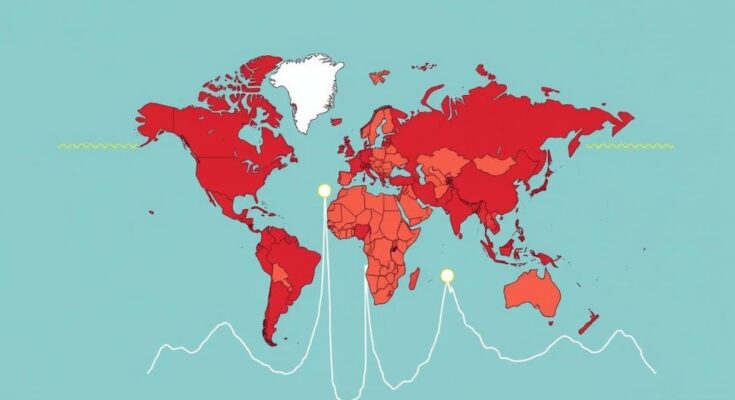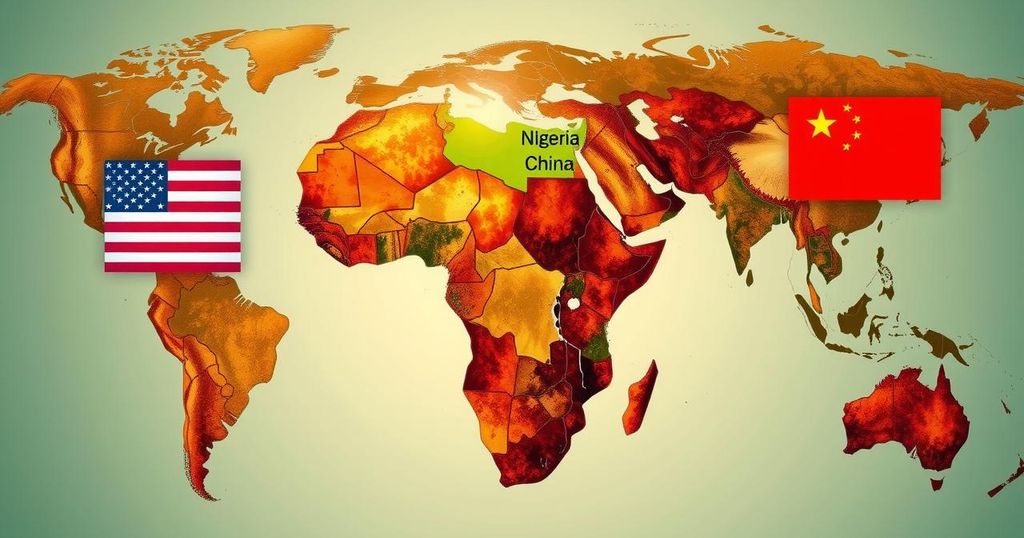In 2024, anti-incumbent sentiment surged globally as voters expressed widespread dissatisfaction with their governments amid economic challenges and instability. Numerous incumbents were defeated in various elections, while the rise of populist and far-right movements complicated the political landscape. Issues such as election interference and domestic unrest further highlighted the ongoing struggles within democratic systems, setting the stage for continued uncertainty in 2025.
The year 2024 witnessed significant electoral upheaval across the globe, with approximately 70 countries, representing half of the world’s population, holding elections. A widespread anti-incumbent sentiment emerged, as voters expressed dissatisfaction with their governments, largely due to socio-economic challenges and global instability. Countries like India, the United States, and Japan saw significant shifts in power, often favoring outsiders i.e., disruptive candidates. This democratic landscape further highlighted protests, election cancelations, and increases in authoritarianism in various regions.
Political scientists attribute the anti-incumbent mood to what is termed “electoral long COVID,” referring to the lingering effects of the pandemic, which exacerbated health, education, and social inequalities. Those challenges were compounded by high inflation and geopolitical tensions resulting from conflicts in Europe and the Middle East. In South Africa, for instance, the African National Congress lost substantial support owing to rampant unemployment and inequality, marking a notable shift after decades of governance.
Throughout the year, incumbents in several nations including Senegal, Ghana, and the United Kingdom were ousted, as voters demanded change through protests or at the ballot box. However, the rise of populist and far-right movements was also evident. In Europe, conservative populists gained traction, reconfiguring the political makeup of countries like France and Germany. The threats of nepotism and interference in elections manifested in nations like Pakistan and Romania, where political dynasties and alleged foreign meddling undermined democratic processes.
Global security concerns were heightened as covert influence operations gained traction, primarily attributed to Russia, Iran, and China. Allegations of election rigging and disinformation campaigns disrupted democratic integrity in nations such as Moldova and Georgia. A particularly precarious situation unfolded in South Korea where a martial law declaration led to political turmoil.
As 2025 approaches, uncertainty persists globally regarding democracy, with challenges looming for incumbents in countries such as Germany and Canada. There appears to be a disconnect between public support for the theoretical framework of democracy versus satisfaction with its practical implementation. This was emphasized by Seema Shah, who pointed out that public enthusiasm for democracy diminishes when satisfaction with its execution is assessed. Many citizens are poised to demand that democratic systems meet their expectations.
The recent wave of elections in 2024 highlighted a significant political trend worldwide characterized by anti-incumbent sentiment. Factors such as economic crises, perpetuated by the residual effects of the pandemic and global unrest, contributed to the electorate’s disillusionment with existing governments. The emergence of populist candidates and far-right factions indicated not only voter frustration but also a rising polarization within many democratic frameworks. Media influence, social upheaval, and authoritarian behaviors within governments further complicated the democratic landscape, presenting challenges for future electoral processes.
The electoral landscape of 2024 revealed a profound discontent with incumbents across a diverse array of nations, spurred by economic distress and political instability. While the rise of populism and the far right presents challenges to established political systems, the growing demand for accountability and reform suggests that voters are increasingly engaged in shaping their democratic processes. As the world moves toward 2025, understanding these dynamics will be crucial for observers and participants in global electoral politics.
Original Source: www.seattletimes.com




